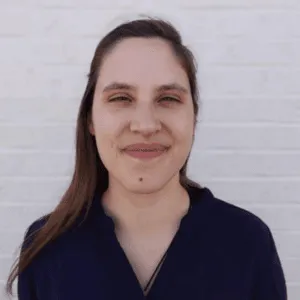The demand for weight loss operations dropped sharply last year as the number of people opting for anti-obesity drugs such as Wegovy and Saxenda more than doubled, a study published Friday found.
The study authors said the research is among the first to explore how the enormous nationwide spike in the use of weight loss drugs correlated with the number of patients choosing to undergo stomach operations to lose weight.
Using a database of health insurance claims from more than 17 million adults, Mass General Brigham researchers identified people diagnosed with obesity but not diabetes.
The researchers found a 25.6% drop in people undergoing bariatric surgery in the final six months of 2023 compared with the number of surgeries people had during the same period the year before. During the latter half of 2023, the number of patients who took a glucagon-like peptide 1, or GLP-1 medication for weight loss, surged by more than 130%, according to a study published Friday in JAMA Network Open.
The study analyzed the weight loss drugs semaglutide and liraglutide, which are sold under the brand names Wegovy and Saxenda. Another popular weight loss drug, Eli Lilly’s Zepbound, was not included because the Food and Drug Administration did not approve it until November 2023.
Thomas C. Tsai, the study’s lead author and a bariatric surgeon at Brigham and Women’s Hospital in Boston, said he pursued the study after he noticed an uptick in patients canceling their surgeries to pursue weight loss through GLP-1 drugs.
Tsai said he was also “hearing a lot of concern from surgeons around the country that their volume was dropping pretty significantly.”
Tsai wanted to provide a national glimpse of how GLP-1 medications might deter consumers from bariatric surgery. In an interview, he also cited anecdotal reports of hospitals that shut down bariatric surgery programs as the number of patients seeking operations slumped. Hospitals have closed bariatric surgery programs in Boston and Norman, Oklahoma.
If hospitals close these weight loss surgery centers, patients in those communities would have fewer options. “There are some patients who may actually benefit from surgery, and they’re not getting it,” Tsai said.
In 2022, nearly 280,000 metabolic and bariatric procedures were performed in the United States, according to the American Society for Metabolic and Bariatric Surgery. That represented about 1% of all U.S. residents eligible for weight loss operations.
Weight loss operations increased in 2022 from the year before, perhaps due to spillover from the COVID-19 pandemic when lockdowns in 2020 and delays in non-emergency operations in 2020 and 2021 created a backlog of demand, Tsai said. He said demand for weight loss operations would likely have increased in 2023 if not for the sudden popularity of GLP-1 drugs.
Other experts said they expected the downturn in bariatric surgeries would be a blip as patients become accustomed to GLP-1s as one among many weight loss options. The CDC estimates that about 40% of U.S. residents have obesity and 1 in 10 have severe obesity.
“Most of the people I know who are in my line of work are not afraid of GLP-1s,” said Ann M. Rogers, director of the Penn State surgical weight loss program. “We are glad to have them come along because it’s making people realize they have a medical problem that there may be treatments for, as opposed to not getting any treatment.”
While taking medication might seem like a quick and easy option to lose weight, there are barriers.
Weight loss operations carry risk, but so do weight loss medications. People on weight loss drugs have reported side effects such as stomach pain, diarrhea and gallbladder issues. Others don’t have insurance coverage and can’t afford the drugs, which can cost more than $1,300 a month.
A study by the Blue Cross Blue Shield Association found more than half the people prescribed weight loss drugs Saxenda and Wegovy over the past decade ended their treatment too early to realize meaningful health benefits.
But Rogers sees a silver lining in the number of people who try and quit weight loss drugs.
“There’s this huge population out there that either is afraid to get treatment, doesn’t have coverage or is ashamed,” said Rogers, president of the American Society for Metabolic and Bariatric Surgery. “If they don’t have coverage for it, or it’s too expensive, or they have side effects, they might then think, ‘Maybe I should try the surgery.'”
This article originally appeared on USA TODAY: Weight loss drugs like Ozempic, Wegovy curb demand for surgery














